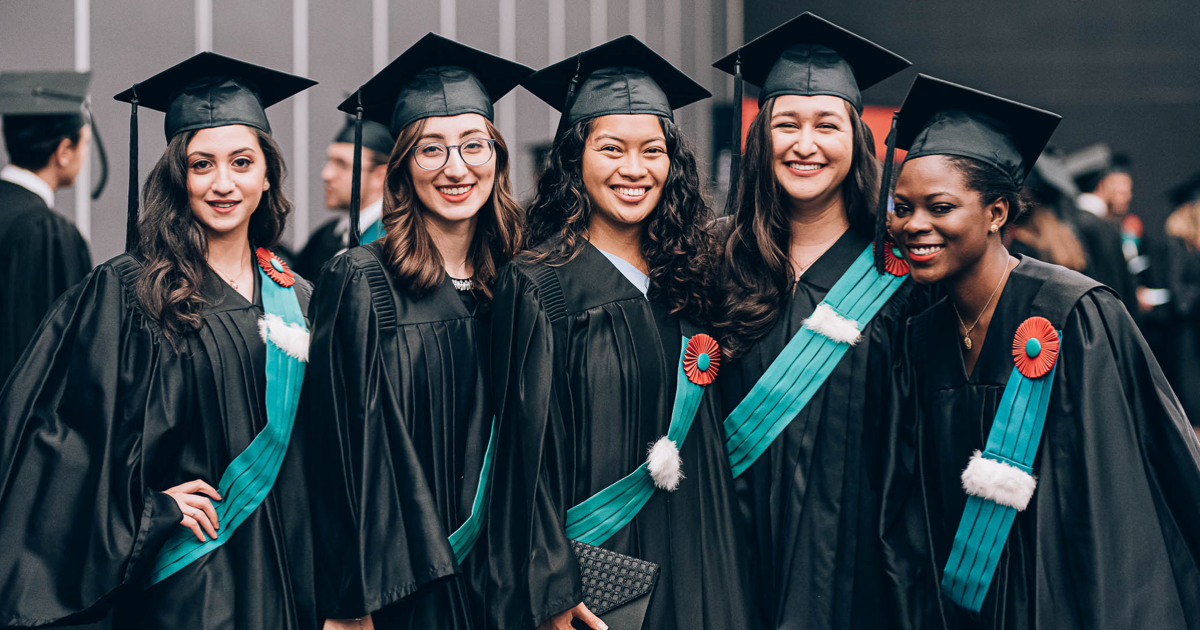Nouvelles
Easing of PEQ guidelines: Polytechnique remains concerned
Nadine Girault, Québec’s Minister of Immigration, de la Francisation et de l’Intégration, announced last Thursday that certain adjustments would be part of Programme de l’expérience québécoise (PEQ) reformulation efforts. While some universities’ requests were taken into consideration (such as: recognition of internships as professional experience, use of the grandfather clause for foreign graduates) Polytechnique nevertheless remains concerned about new conditions imposed on International students are already studying in Québec - notably the length of work experience required for Temporary Foreign Worker status, and the new delay in application processing.

(Photo : Caroline Perron photographies)
Broken “moral contract”
Since last autumn, Polytechnique Montréal’s President has joined a growing group – including business leaders, students associations, and other university leaders via the Bureau de coopération universitaire – BCI - who have requested flexibility in terms of PEQ reforms. Some key demands made of the government were to enable international students registered in a Québec university program (or scheduled to start one as of August 2020), to benefit from accelerated processing of Québec Permanent Residence applications – as was the case with previous iterations of the PEQ.
“These students were recruited by their respective universities based on that possibility. It’s unfortunate in terms of Québec’s reputation, as well as that of its universities, to change the rules when the proverbial game has already started. Requiring international students have a year’s worth of work experience before permitting them to even apply for the PEQ, when the processing time for a PEQ application is increasing from one month to six months, it’s something of a rupture of moral contract,” explains Polytechnique Montréal’s President Philippe A. Tanguy, who intends to continue efforts related to the Québec government program.
Further complicating matters is the new requirement of two years’ worth of work experience now required of international workers seeking to immigrate to Québec, something that makes recruiting international calibre professors that much more difficult, given their high demand in institutions across Canada and worldwide. “This element is all the more critical for Polytechnique, given that we are counting on hiring over 60 accomplished professors over the next few years,” stresses Tanguy.
Polytechnique: an international engineering university
International students hold an important place at Polytechnique. Nearly one-third of bachelor’s-level and over half of graduate students originate from outside of Canada’s borders. Within those impressive percentages, some one hundred countries are represented. “International students contribute to Québec’s economy and society at large, right from their arrival at Polytechnique. They often make significant sacrifices to come and study here. The prospect of permanently settling here in Québec and contributing to it as citizens upon graduation has enormous appeal for many of them. Given our highly competitive global world, our society simply cannot deprive itself of this generation’s presence, talents, and creativity,” notes Tanguy.
A diploma that opens doors
A time-honoured education that embodies excellence, having studied at Polytechnique Montréal remains a passport to great careers in Québec, Canada, and abroad. In close to all engineering specialities, bachelor’s degree graduates have nearly a 100% employment rate. Further, Polytechnique also provides its students with personalized career advice and counselling services (stages.emplois@polymtl.ca).
The Ministère de l'Immigration, de la Francisation et de l'Intégration du Québec offers regular information seminars at Polytechnique for students seeking additional information about permanent residency once they graduate. As soon as dates for the above information seminars have been confirmed, the Service aux étudiants de Polytechnique will announce them.




